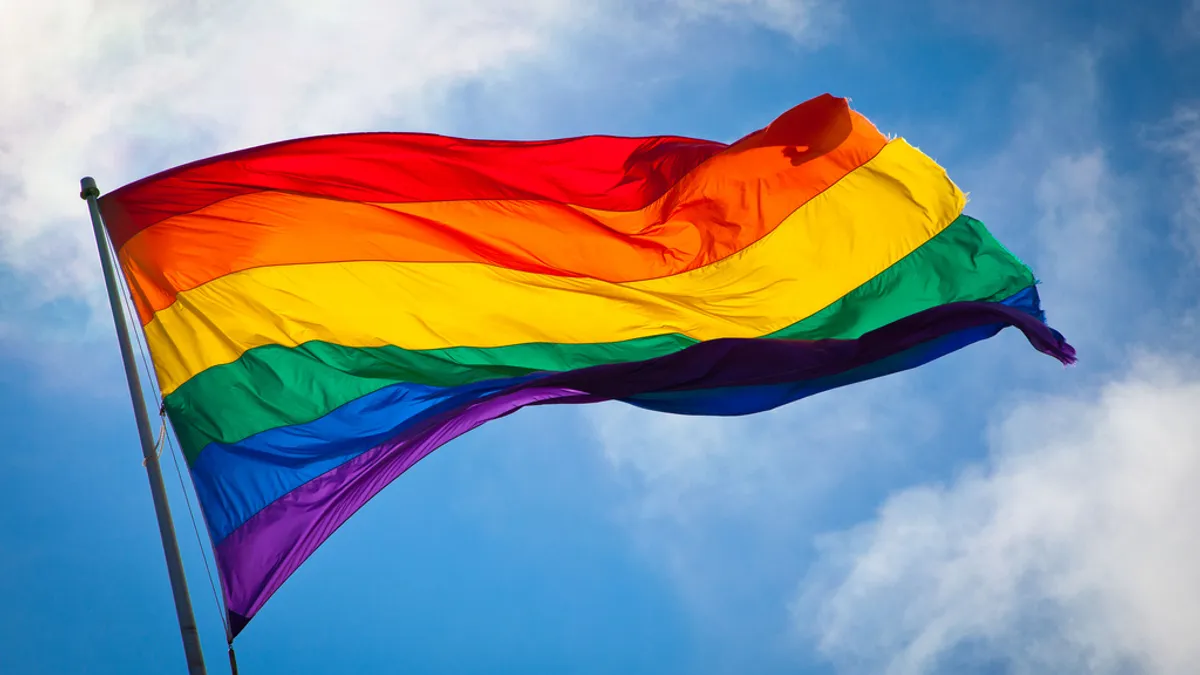Dive Brief:
- LGBTQ employees at federal workplaces feel less respected than non-LGBTQ colleagues, according to a new study from the University of Michigan. Researchers found that LGBTQ workers are less satisfied with their pay, not as comfortable with whistle blowing and feel less supported in their attempts to balance work and life responsibilities. In addition, minority LGBTQ respondents reported less job satisfaction than white LGBTQ employees. The study was conducted by the U.S. Office of Personnel Management and included questions about employee treatment, workplace fairness and job satisfaction; 330,000 employees (11,000 of whom identified as LGBTQ) in 28 federal agencies with LGBTQ-inclusive policies participated.
- Because of their negative workplace experiences, the LGBTQ workers indicated they were more likely than their non-LGBTQ colleagues to seek work elsewhere in the next year, the study said.
- One of the study's authors, Erin Cech, assistant professor of sociology, suggested that employers create LGBTQ employee resource groups or provide training to lessen biases. "Of fundamental importance is the passage of basic nondiscrimination laws for LGBTQ-identifying workers at the national level," she said in a news release.
Dive Insight:
Many state and local laws provide protections to the LGBTQ community, and federal proposals to eliminate discrimination in employment on the basis of sexual orientation and gender identity have been proposed in Congress for a number of years. But, so far, none of the federal bills have been passed into law.
Lawmakers introduced the Equality Act — a bill that would extend the protections of Title VII to include LGBTQ workers — earlier this year. The bill was approved by the U.S. House of Representatives on May 17 and was sent to the U.S. Senate on May 20. It is now in the Judiciary Committee, but it's unclear whether it will receive approval or even further consideration in the Republican-controlled Senate.
The U.S. Supreme Court decided earlier this year to tackle the question of whether employees are protected from workplace discrimination based on sexual orientation and transgender status when it agreed to hear a trio of cases: Bostock, Altitude Express, Inc. and R.G. & G.R. Harris Funeral Homes. The Supreme Court's decision would resolve a split among the federal judicial circuits on Title VII protection for LGBTQ individuals.
Legal experts recommend that employers not take adverse employment actions against employees because of their sexual orientation or transgender status. Many employers have gone even further and have added LGBTQ status in their nondiscrimination and anti-harassment policies and training, while others have worked to create an inclusive environment.











